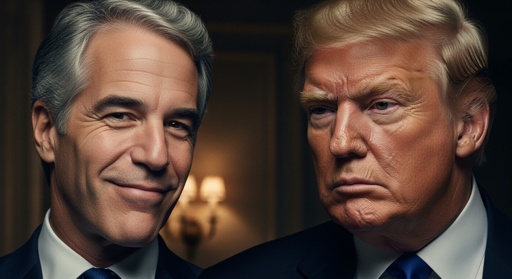UK police arrested four peaceful protesters for projecting Trump-Epstein images onto Windsor Castle, exposing a dangerous erosion of free speech rights that should alarm every American who values constitutional protections.
Peaceful Protest Becomes Criminal Act
Led By Donkeys, a UK protest organization, projected images of President Trump and Jeffrey Epstein onto Windsor Castle during Trump’s second state visit to Britain. The non-violent demonstration utilized digital projection technology to display what the group described as “a piece of journalism” on the castle’s exterior wall. UK police responded by arresting four organizers on charges of “malicious communications,” sparking immediate controversy over the proportional response to peaceful expression.
Government Deploys Massive Police Response
British authorities deployed over 1,600 police officers to manage widespread protests during Trump’s visit, demonstrating the government’s prioritization of diplomatic relations over civil liberties. The Stop Trump Coalition organized broader demonstrations, with protesters declaring “Donald Trump is not welcome here.” The heavy-handed police presence contrasted sharply with the peaceful nature of most protests, raising questions about government priorities and resource allocation during times of political dissent.
Free Speech Under Fire
Civil liberties advocates immediately condemned the arrests as government overreach, with legal experts questioning the application of “malicious communications” charges to symbolic protest. The incident highlights concerning trends in Western democracies where peaceful dissent faces increasingly aggressive state responses. This chilling effect on legitimate protest threatens the fundamental right to political expression that forms the backbone of democratic society, principles Americans hold sacred in our First Amendment protections.
Broader Implications for Constitutional Rights
The arrests represent a troubling precedent where governments prioritize diplomatic sensitivities over citizens’ constitutional rights to peaceful protest. Legal experts note the dangerous expansion of vague communication laws to criminalize symbolic speech, a tactic that could easily be replicated against American conservatives expressing dissent. The incident serves as a stark reminder of how quickly authoritarian measures can suppress legitimate political expression when governments decide certain viewpoints threaten their preferred narratives.
Americans should view this UK government overreach as a warning about the fragility of constitutional protections when authorities prioritize political convenience over fundamental rights. The peaceful nature of the protest makes the arrests particularly egregious, demonstrating how easily governments can criminalize dissent under broad, subjectively applied laws that threaten the very foundation of democratic discourse.


When “free speech” is used to lie, it is a sin and people need to be accountable/punished for same – same as committing perjury:
The 9th Commandment, which is “You shall not bear false witness against your neighbor” (Exodus 20:16), prohibits lying, deceit, and any form of misrepresentation that harms another person’s reputation or causes them undeserved suffering. It requires speaking the truth honestly and fairly, both in legal contexts and in daily life, and extends to avoiding slander, gossip, and the silent omission of truth when it is needed. The commandment underscores the importance of truth and justice in society and reflects God’s own truthful nature.